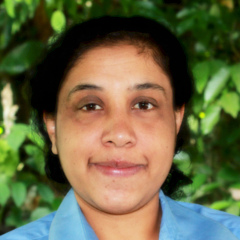ABC of Civil Services | Three rules to follow while choosing an optional subject

Mail This Article
The result of civil service main examination was announced last week and as always it brought mixed feeling for someone who trains candidates. Those who made it will get busy preparing for the last step. But those who missed the opportunity need some time to cope with it. Since the marks and cut off will only be announced later, one has to wait to understand what went wrong. But many candidates jump to conclusions too early and most of them blame their optional subject for the negative result. These people conclude that their particular optional subject was not a “scoring” one and hence the setback.
Some candidates think about changing the optional subject without even waiting to know how well they have performed! I have seen people who change optional too often as per “trends”, that is based on suggestions from wannabe experts who predict that this year will be good for a particular optional! The terms “scoring” and “non-scoring” are also attributed to certain subjects and candidates are afraid to opt for certain subjects even though they have the background and are comfortable in them. Coaching institutes often persuade people to choose whichever subjects are available with them. There are certain fixed ideas like “Geography is good for engineers” and “Sociology is way too easy”. In Kerala, Malayalam literature is considered as a “scoring” optional and maximum number of candidates choose it. So, amid all this confusion, let us examine the importance of optional subject in detail.
Wrong notion
There are candidates who believe that one has to study Humanities in order to clear civil service and they select subjects like Economics for graduation and choose the same as optional. A lot of aspirants from Uttar Pradesh and Bihar still do this. But the majority of candidates from Southern states are engineering graduates now and most of them choose new subjects as optional.
There are three rules to follow while choosing an optional subject. The first one is interest. Since one has to keep reading an optional subject for a minimum period of two years, it is important to have an active interest in it. This differs from person to person.
For example, there are people who love History and there are others who fall asleep at the very mention of a history text book. So, choose a subject in which you have genuine interest.
The next step is to check whether one has aptitude in a particular subject. This is related to the nature of the subject. Certain subjects like Geography are more factual whereas a subject like Sociology demands that one should analyse different point of views. The nature of questions in literature demands another approach. One has to shortlist subjects and analyse the syllabus and previous questions to determine these two criteria.
The third aspect is the practical concern of availability of resource persons. As one needs to write descriptive answers in optional papers, it is important to practice writing model answers and get it corrected by reliable teachers. This is why those who join institutes for full-time coaching end up taking optional subjects available there. But one should go through the first two steps of checking one’s interest and aptitude before fixing the resource person.
When it comes to the question of “scoring” and “non-scoring” optional, let me tell you that I have seen aspirants who score high and low in every possible optional subject. Let us consider the optional of the first rankers of the past six years (the present pattern of examination with one optional started six years back). They are Economics, Geography, Political Science, Kannada Literature, Anthropology and Mathematics respectively! Do I need to say anymore? Any optional is “scoring” for a person who has comfort in it. As the mark for optional in main exam is 500, one needs to score closer to 300 to maintain a good overall score.
For subjects in which resources are easily available, the number of successful candidates will be higher and so are the number of failures. Most of the people just compile the result of less than ten of their fellow aspirants to conclude whether an optional is “scoring”. Each year in every subject, there are high and low scores if you analyse the total data. Be objective, make a right choice regarding the optional, and work well. It will be rewarding irrespective of the trends.
(The author is a fomer IPS offcer and a trainer for civil service aspirants)


